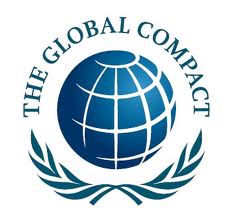
Bron
Sustainalytics
The UN Global Compact today launched the Global Compact 100 a stock index of companies committed to the Global Compact ten principles that shows a total investment return of 26.4 percent during the past year, surpassing the general global stock market.
The GC 100, released in partnership with research firm Sustainalytics, is composed of a representative group of Global Compact companies selected based on their Sadherence to the Global Compacts ten principles as well as evidence of executive leadership commitment and consistent base-line profitability.
The GC 100 tracked the stock market performance of these companies during the past three years, comparing the results against a broad market benchmark, the FTSE® All World. The data for total returns is as follows:
GC 100 rose 26.4% during past 1 year; FTSE® All World rose 22.1%
GC 100 rose 19.0% during past 2 years; FTSE® All World rose 17.7%
GC 100 rose 12.0% during past 3 years; FTSE® All World rose 12.0%
ungcWhile the performance of the GC 100 should not be seen as clear evidence of a causal relationship between a commitment to corporate sustainability practices and stock performance, there appears to be an exciting correlation, said Georg Kell, Executive Director the UN Global Compact. Moreover, the results may also reflect the fact that sustainability performance is a factor that is receiving increasing interest from investors.
The GC 100 marries corporate performance on environmental and social issues with a requirement of basic profitability. Kell added, Sustainability performance should not be looked at in isolation so we included a requirement of basic financial good health. Both factors are often taken as proxies for the quality of management, which can be an important determinant of investment returns.
We are very pleased to see the results of this new research. The performance of the GC 100 Index over the past two years is particularly notable, said Michael Jantzi, Chief Executive Officer of Sustainalytics. Portfolios containing companies that exhibit enhanced extra-financial risk management characteristics have the potential to perform better over time. We developed the GC 100 to test that hypothesis and these initial results are positive.
Sustainalytics carried out the research in constructing the GC 100, using a proprietary methodology that takes into consideration a range of indicators based on the Global Compacts ten principles in the areas of human rights, labour standards, environmental stewardship, and anti-corruption. In creating the index, Sustainalytics only evaluated those Global Compact signatories that are currently covered in its research universe approximately 722 companies in total. (The Global Compact today includes almost 8000 corporate signatories, of which approximately 1000 are publicly traded companies.)
It is important to stress that we are not saying that these 100 companies are the best performers in the Global Compact, said Mr Kell. The Global Compact has many thousands of companies that are doing excellent sustainability work. We merely wanted to experiment with the link between sustainability polices and stock-market performance. And the initial results are very encouraging.
Akzo Nobel and Unilever are the Dutch companies in the Global Compact 100 Index.


